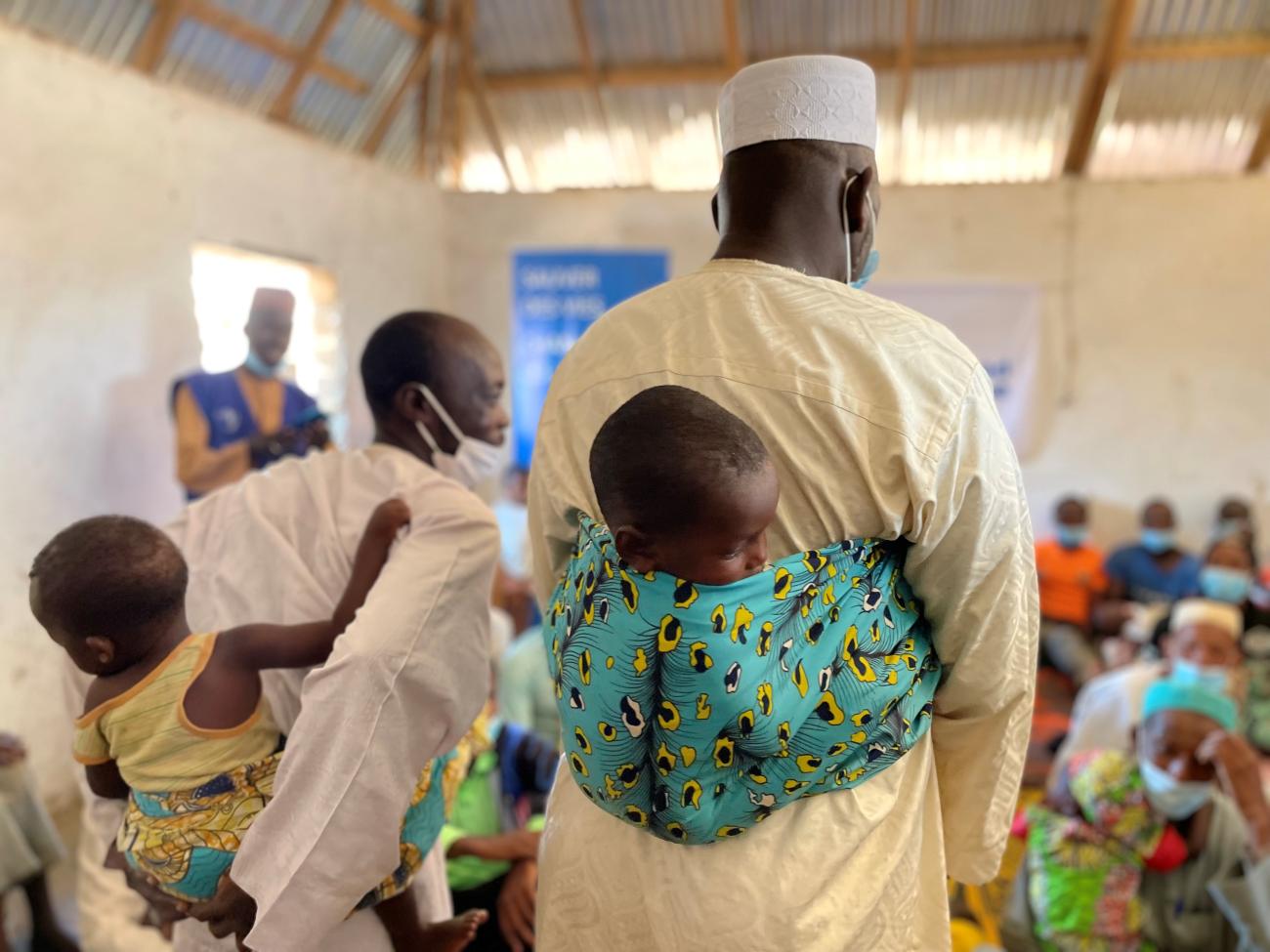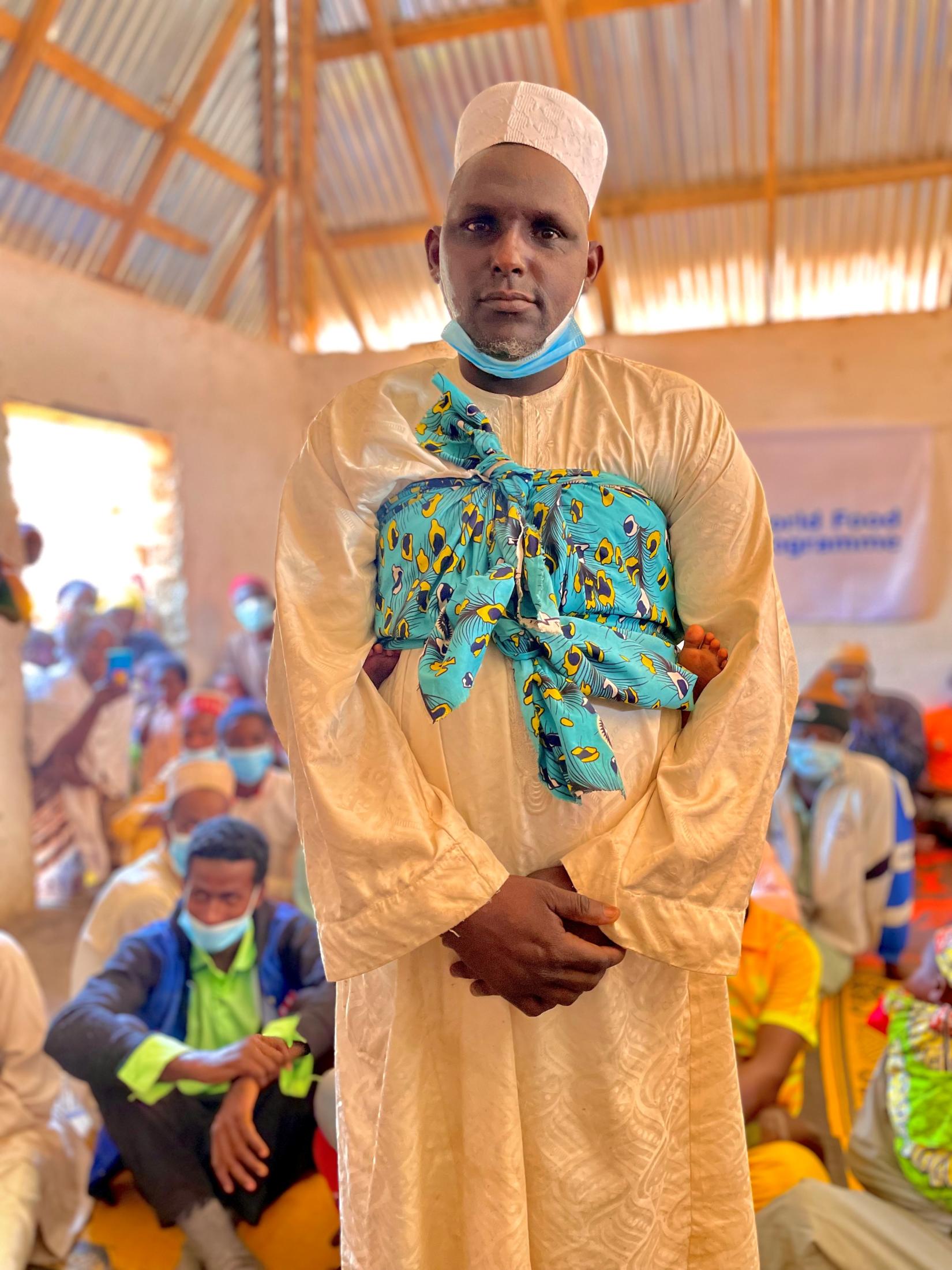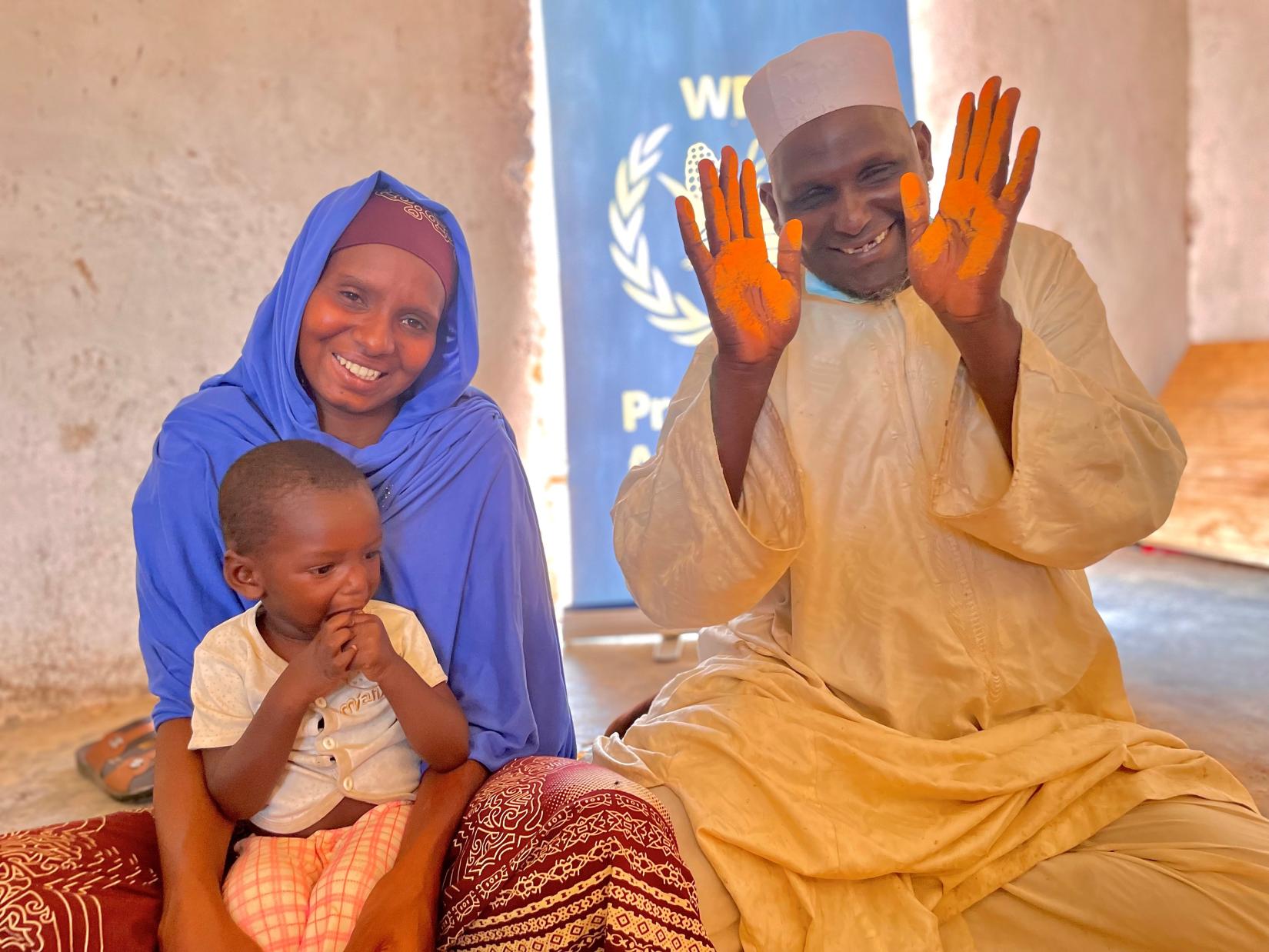Engaging Men as Champions for child nutrition

In this community, Nandeke, located some 8 kilometers from Meiganga in the Adamawa region of Cameroon, 7% of children suffer from moderate acute malnutrition
It was an exciting scene. Other men looked on. The women smiled happily. Abdoulaye Djibrilla, most commonly known as Alhadji Djibrilla was carrying his child on the back. It is a rare sight in Cameroon’s Northern region to see an ‘Alhadji’ with a baby on his back. For this Alhadji however, gender stereotypes are not strong enough to prevent him from giving his child the care necessary for a healthy growth and for helping out his wife when he can.
In this community, Nandeke, located some eight kilometers from Meiganga in the Adamawa region of Cameroon, 7% of children suffer from moderate acute malnutrition. This is according to a community screening survey in September 2021 by the International Medical Corps, IMC. The exercise equally revealed that childcare is sometimes left exclusively to the woman who has to cater to every other member of the family.
As part of activities to commemorate the 16 days of activism against Gender Based Violence campaign, WFP engaged parents of beneficiaries of its Blanket Supplementary Feeding Programme (BSFP) to be more complimentary in the execution of house roles. It was an opportunity for mothers and fathers, men and women to participate in the nutrition welfare of their children.
While some men learnt how to make a pap of the nutritious super cereal, others engaged in cooking demonstrations. A total of 30 men and 55 women were present at the food distribution site where roles were reversed and men for the first time carried their babies while listening to educative talks on child nutrition.

They were briefed on the importance of a balance diet for children, how to prepare WFP’s specialized nutritious food and the positive effects of helping their partners at home towards bringing up well-nourished children. “I have always had a notion that my wife and I are a team, but today, I got to put it into action,” Djibrilla said. “To guarantee our children’s future, women and men must work together to properly nourish them” he added.
Mousmado Issa, 45, is another parent of a BSFP beneficiary actively participating in WFP’s 16 Days campaign activity. According to him, his child, Rougyatou Issa had survived what Doctors described as moderate Acute malnutrition due to the intervention of both WFP nutrition sensitive interventions and his support at home. “My wife does not go the market. In our community here, men are principally the purchasers and providers of food. As a man, it is therefore important to know what food to buy which has good nutritional value.” Issa continued.
When he heard of the nutrition sensitization programme targeting men, he was curious. “I wanted to know what types of food my children need,” he said. With the lessons he has received on Infant and young child feeding, he is excited to talk to other men in his community on how they can provide better nutrition for their families.

The District Medical Officer for Nandeke, Abbou Salle, lauded WFP’s initiative to include men in nutrition interventions. To him, men play a critical role in providing support that improves maternal and child health. “Undernutrition among children less than 5 years is still a public health concern in Cameroon and we believe that when men know better, they can influence and help increase breastfeeding rates, better maternal health outcomes for women and improve nutrition at home”. He called on WFP and its cooperating partner to apply such initiatives in all other intervention areas in the bid to improve child nutrition in Cameroon.
WFP Nutrition interventions in Cameroon are supported by the generous donations of Japan and Germany.










